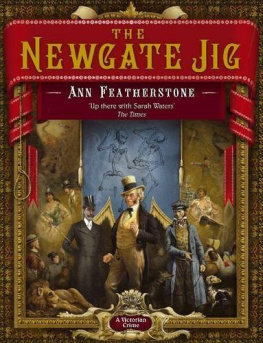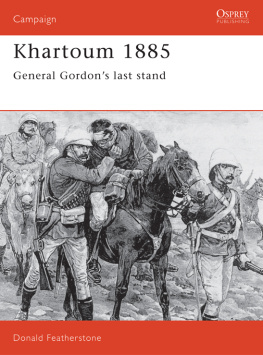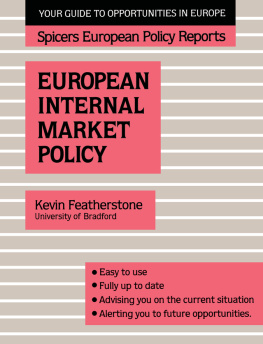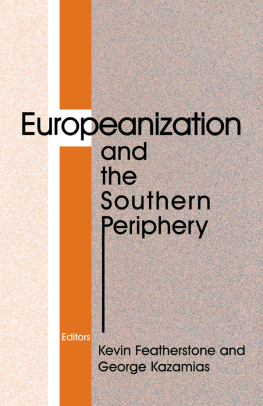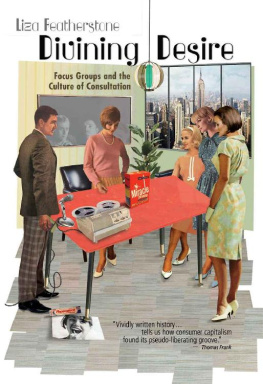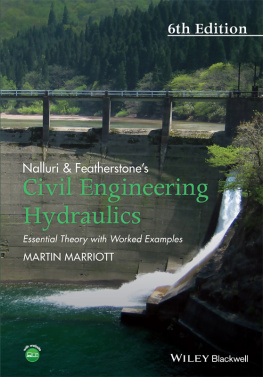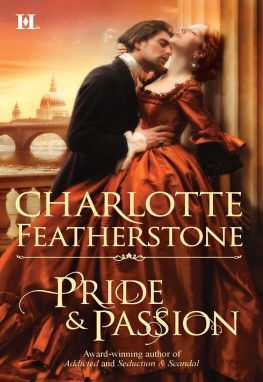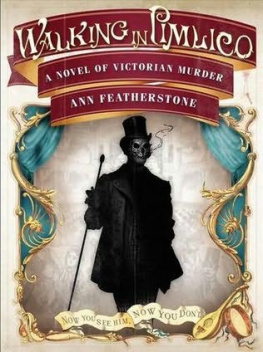Featherstone - Equal Ever After
Here you can read online Featherstone - Equal Ever After full text of the book (entire story) in english for free. Download pdf and epub, get meaning, cover and reviews about this ebook. year: 2016;1995, publisher: Biteback Publishing, genre: Politics. Description of the work, (preface) as well as reviews are available. Best literature library LitArk.com created for fans of good reading and offers a wide selection of genres:
Romance novel
Science fiction
Adventure
Detective
Science
History
Home and family
Prose
Art
Politics
Computer
Non-fiction
Religion
Business
Children
Humor
Choose a favorite category and find really read worthwhile books. Enjoy immersion in the world of imagination, feel the emotions of the characters or learn something new for yourself, make an fascinating discovery.
- Book:Equal Ever After
- Author:
- Publisher:Biteback Publishing
- Genre:
- Year:2016;1995
- Rating:5 / 5
- Favourites:Add to favourites
- Your mark:
- 100
- 1
- 2
- 3
- 4
- 5
Equal Ever After: summary, description and annotation
We offer to read an annotation, description, summary or preface (depends on what the author of the book "Equal Ever After" wrote himself). If you haven't found the necessary information about the book — write in the comments, we will try to find it.
Equal Ever After — read online for free the complete book (whole text) full work
Below is the text of the book, divided by pages. System saving the place of the last page read, allows you to conveniently read the book "Equal Ever After" online for free, without having to search again every time where you left off. Put a bookmark, and you can go to the page where you finished reading at any time.
Font size:
Interval:
Bookmark:
For
Jenna and Cade
M y story starts at the very end of the journey to equal marriage rights. I stand on the shoulders of giants. The credit for same-sex marriage goes to them.
I want to dedicate this book to all those who have suffered the pain, insult and injury of inequality; to all those who have battled prejudice, discrimination and hatred; to all the brave heroes of the same-sex marriage journey on which I had the opportunity to go the final mile.
My thanks go to the campaigners, the LGBT community and the political parties who pooled their efforts. To Nick Clegg, who supported me all the way. To David Cameron for sticking with it. To Labour for civil partnerships. To my civil servants for their dedication. To Mark Pack for helping me to get elected in the first place. And to Iain Dale and Biteback for recognising that this story needed to be told.
This is my memory. To those who feel they should be in this book and are not I apologise. To those who are in the book but wish they werent tough.
I wrote this book to get my story on the record.
Same-sex marriage is my happy place in politics and always will be.
I made my intention to deliver same-sex marriage very clear to my officials soon after arriving in office.
Same-sex marriage wasnt in the coalition agreement. Nor was it in any of the main manifestos, as has been pointed out countless times. It just wasnt on the agenda but I thought it ought to have been. It was glaringly obvious to me that people of the same sex who love each other should have exactly the same right to marry as heterosexual couples. I was Equalities Minister, moreover a Liberal Democrat Equalities Minister. If I didnt use this opportunity of a lifetime to deliver liberal policies, who would?
I received some very good advice very early from an induction session at the Institute of Government, where we new ministers had been corralled so that old hands could imbue in us some idea of what we were meant to be doing. Part of the session involved two big beasts of yesteryear: Michael Heseltine and Andrew Adonis. What on earth could I learn from a Conservative and a Labour lord? Quite a lot, as it happened. I owe both of them a big thank-you for what they told us that day.
Michael Heseltines advice was to the effect that we newbies had no idea of the level of work that would rain down on us as ministers. That we would shortly be overwhelmed with the relentless daily juggernaut of submissions, correspondence, miscellaneous paperwork, parliamentary debates, oral questions, Bill committees, evidence sessions with select committees, meetings, briefings, speeches, all-party parliamentary groups, events, visits, awards ceremonies and box work. Unless we decided on our own priorities and relentlessly drove them forward, we would find that we would leave office having done all our required work very nicely, but quite possibly not having done anything that we actually wanted to do.
I remember thinking as the avalanche hit that I would decide on my absolute priority issue. It would be something liberal and it would not be just part of my daily work. It would be something that no one else could or would do well, not in this parliament. I said to my private office that I didnt know how many times in history a Liberal Democrat would be Equalities Minister. Our disastrous result in the 2015 elections, when I lost my seat along with so many others, means it may be quite a while until the next one. I determined to make the most of the job whilst I had the opportunity. I made it crystal clear that my number one priority was to find a way to introduce same-sex marriage into the government programme and deliver it thereafter.
Private office is composed of civil servants who sit outside the ministers office and act as the ministers gatekeepers. They were also the ministers link with the rest of the civil service. I had a diary secretary, a bitch of a job, taking a massive amount of patience and accuracy; a private secretary, who was my head of office; and four assistant private secretaries, each of whom was in charge of a portion of my very extensive portfolio. I mention this in particular because the other excellent piece of advice I got that day at the Institute of Government was how to get the best out of your civil servants.
The advice from Andrew Adonis was very clear. Civil servants want direction. In contrast to political life as portrayed in The Thick of It or Yes Minister which, whilst wildly exaggerated, certainly have moments of uncomfortable accuracy in real political life, if you tell your officials what you want to achieve they will do the very best they can to deliver for you. But if you are not careful the machine of government will roll on and over you. If you dont make your wishes clear then your diary will fill up with duties, leaving you no time for anything proactive.
I went back to the Home Office and set out my priority to introduce same-sex marriage. It was liberal. It righted a wrong and it would mean a huge amount to those it gave the freedom to choose to marry. I believed it was possible. Thus I decided and set my course.
I have an awful lot to thank my civil servants for. I cannot name them but they know who they are and one day, when the appropriate time has elapsed, I would love to do so. It was their desire and determination to help me deliver my mission on same-sex marriage that helped break through the early barriers and blockages that could so easily have strangled the whole project at birth.
In terms of my portfolio, the title of Equalities Minister was a bit of a misnomer. Not unnaturally, people assumed that I had responsibility for women, and for lesbian, gay, bisexual and transgender (LGBT) people which I did but also for disability, race, older people and younger people which I did not. Disability resided at the Department for Work and Pensions, as did the responsibility for older people. Race sat in Communities and Local Government under a community cohesion hat and I have no idea where youth was at all.
Besides LGBT and women, I was in charge of the Equality Act and the Equality and Human Rights Commission (EHRC). The bulk of my work, however, was not as Equalities Minister but as a Home Office minister with responsibility for a wide range of issues. Those issues ranged from violence against women, private investigators, internet child safety, criminal records, gangs and girls, prostitution, animal experiment licensing, hate crime and much, much more to wheel clamping (which I banned on private land).
Additionally, David Cameron appointed me as the ministerial champion for tackling violence against women and girls overseas. It was a role I kept for all five years of the coalition. Actually, that is not entirely accurate. Cameron had originally chosen a Conservative to carry out this important role. However, the Home Secretary, Theresa May, came into my office one day during the first few weeks of government and said she wanted to ask me a favour. Would I be willing to take on this role? She didnt believe that the person Cameron had selected was suitable. (Yes, I do know who it was. No, I am not going to tell.) I have to say I was a bit surprised that Theresa wanted to insert a Liberal Democrat into what had clearly been a role earmarked for a Conservative. I dont know what was found wanting with the person Cameron had originally selected but I was delighted to be offered the role and accepted immediately. This was to be the role that led to my work on ending female genital mutilation and indeed to my work in Africa both on violence against women and on gay rights.
The equality context in which I would be trying to secure what turned out to be one of the most contentious pieces of legislation of our time was not promising. My Conservative coalition partners were hardly falling over themselves to promote equality measures. They hated the Equalities and Human Rights Commission (EHRC). They hated the Human Rights Act. On coming into office, they set about trying to get rid of both. We Liberal Democrats stopped them on both counts.
Font size:
Interval:
Bookmark:
Similar books «Equal Ever After»
Look at similar books to Equal Ever After. We have selected literature similar in name and meaning in the hope of providing readers with more options to find new, interesting, not yet read works.
Discussion, reviews of the book Equal Ever After and just readers' own opinions. Leave your comments, write what you think about the work, its meaning or the main characters. Specify what exactly you liked and what you didn't like, and why you think so.


